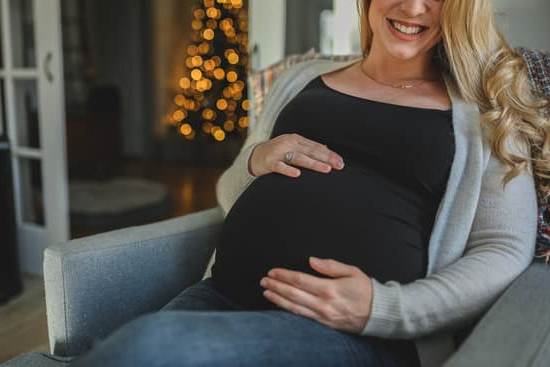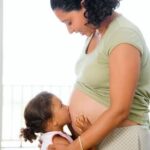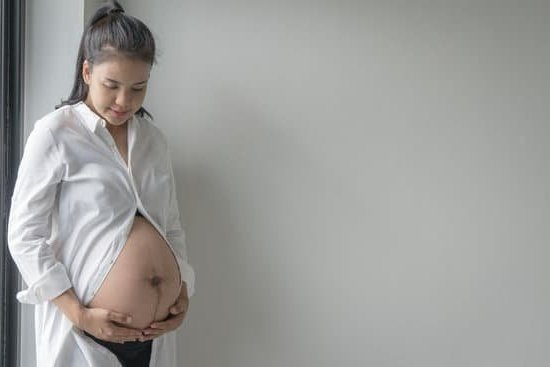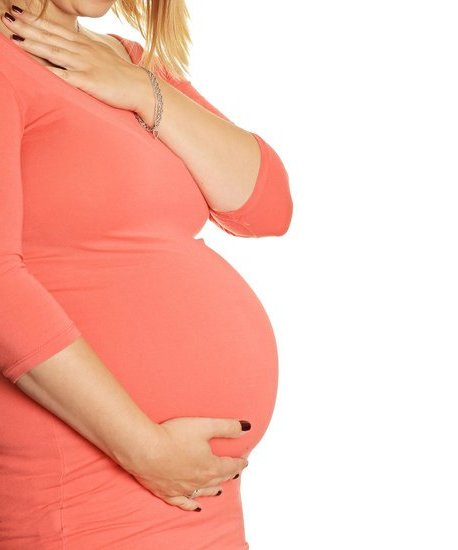Are you wondering how soon can you get pregnancy symptoms after conception? The early signs of pregnancy can vary from woman to woman, but they typically start to appear within the first few weeks after fertilization. Understanding these symptoms and being able to recognize them early on can be crucial for many women who are trying to conceive or who may have unexpected pregnancies.
During the initial stages of pregnancy, the body undergoes various changes as it prepares to nurture a growing baby. These changes often manifest in the form of early pregnancy symptoms, which can range from subtle to more noticeable indicators. From hormonal shifts to physical changes, these symptoms can provide important clues about a possible pregnancy.
Factors such as the menstrual cycle, ovulation, and individual differences can influence when and how early pregnancy symptoms develop. It’s essential to know what signs to look out for and how they may vary depending on your body. By understanding the timing and nature of these symptoms, women can better prepare themselves for the next steps in their journey towards motherhood.
Understanding the Menstrual Cycle and Ovulation
The menstrual cycle plays a crucial role in understanding how soon pregnancy symptoms can appear after conception. Typically, the menstrual cycle lasts for about 28 days, although it can vary from woman to woman. Ovulation occurs around the middle of the cycle, approximately 14 days before the start of the next period. During ovulation, an egg is released from the ovary and is available for fertilization by sperm.
Ovulation and Conception
Once ovulation takes place and an egg is fertilized by sperm, it forms a zygote which then travels down the fallopian tube towards the uterus where it implants into the uterine lining. This process usually occurs within 6-12 days after fertilization. It is at this stage that some women may start experiencing early pregnancy symptoms as their body begins to undergo changes to accommodate the growing embryo.
Role of Hormones
Hormones play a vital role in regulating the menstrual cycle and early pregnancy symptoms. After conception, the body starts producing more human chorionic gonadotropin (hCG) hormone, also known as the pregnancy hormone. This hormone helps to maintain the uterine lining to support pregnancy and is responsible for many early pregnancy symptoms such as nausea, breast tenderness, and fatigue. The fluctuation of hormones in early pregnancy can vary from woman to woman, which can influence when these symptoms start to manifest.
Signs and Symptoms of Early Pregnancy
During the early stages of pregnancy, many women may experience a variety of signs and symptoms that indicate they are expecting. These symptoms can vary from woman to woman, but some common early signs include missed periods, fatigue, nausea or morning sickness, breast tenderness, frequent urination, and mood swings. It is important to note that not all women will experience all of these symptoms, and some may not experience any at all.
One of the key indicators of pregnancy is a missed period, which is often the first sign that prompts women to consider the possibility of being pregnant. However, it’s essential to remember that a missed period can also be due to other factors such as stress or hormonal imbalances.
Other early signs like fatigue and nausea can also be mistaken for other conditions or illnesses, so it’s important to pay attention to your body and consult with a healthcare provider if you suspect you may be pregnant.
It’s natural for women who are trying to conceive to eagerly anticipate the onset of pregnancy symptoms after conception. While some women may start experiencing symptoms as early as one week after conception, others may not notice any until several weeks later.
Every woman’s body is different, so the timing and intensity of pregnancy symptoms can vary. If you suspect you may be pregnant but have not experienced any symptoms yet, it’s best to wait a few more days or weeks before taking a pregnancy test for accurate results.
Factors That Influence the Onset of Pregnancy Symptoms
Several factors can influence when a woman may start experiencing pregnancy symptoms after conception. One key factor is individual variation in hormone levels and how quickly they rise after fertilization. Some women may have higher levels of human chorionic gonadotropin (hCG) earlier on, leading to early onset of symptoms, while others may take longer for hCG levels to reach detectable levels in urine or blood.
Furthermore, a woman’s sensitivity to hormones plays a role in how soon she may notice pregnancy symptoms. Some women are more attuned to changes in their bodies and may pick up on subtle signs like fatigue, breast tenderness, or nausea earlier than others. On the other hand, some women may not experience noticeable symptoms until several weeks into their pregnancies.
Additionally, underlying health conditions, such as polycystic ovary syndrome (PCOS) or thyroid disorders, can impact when pregnancy symptoms appear. Women with these conditions may have irregular menstrual cycles or hormonal imbalances that can make it challenging to distinguish early pregnancy symptoms from normal variations in their health. It’s essential for women with these conditions to work closely with their healthcare providers to monitor any changes and determine the cause behind them.
| Factors Influencing Pregnancy Symptom Onset | Description |
|---|---|
| Hormone Levels | Differences in hCG levels impact symptom onset |
| Sensitivity to Hormones | Individual perception of bodily changes affects symptom recognition |
| Underlying Health Conditions | Conditions like PCOS can alter menstrual patterns and symptom presentation |
How Soon Can You Get Pregnancy Symptoms After Conception
After conception, many women may wonder how soon they can expect to experience pregnancy symptoms. The answer varies from woman to woman, as each pregnancy is unique. However, understanding the timeline of early pregnancy symptoms can help alleviate some of the uncertainty that comes with waiting for confirmation of pregnancy.
Early Hormonal Changes
In the days following conception, hormonal changes begin to take place in a woman’s body. Once the fertilized egg implants itself into the uterine lining, it starts producing the hormone human chorionic gonadotropin (hCG). This hormone is what triggers many early pregnancy symptoms and is also what a pregnancy test detects to confirm pregnancy.
Physical Signs and Symptoms
Some women may start noticing physical signs and symptoms within a week or two after conception. These can include tender or swollen breasts, fatigue, increased urination, nausea or vomiting (morning sickness), food aversions or cravings, mood swings, and even implantation bleeding for some women. It’s important to note that not all women will experience these symptoms and some may only notice one or two.
Psychological Symptoms
In addition to physical changes, many women may also experience psychological symptoms shortly after conception. These can include heightened emotions, mood swings, increased sensitivity to smells and taste, or even a sense of intuition about being pregnant. Some women may just “feel” different without being able to pinpoint exactly why. Trusting your instincts and paying attention to your body can help you recognize potential early signs of pregnancy sooner rather than later.
Common Misconceptions About Early Pregnancy Symptoms
Many women often wonder, “how soon can you get pregnancy symptoms after conception?” It is important to note that the timing of when pregnancy symptoms may appear can vary from person to person. While some women may experience early signs of pregnancy just a few days after conception, others may not notice any symptoms until weeks later. It is essential to understand the range in which these symptoms can manifest to avoid any misconceptions.
To shed light on the timeline of early pregnancy symptoms, here are some factors that may influence when they appear:
- Timing of Implantation: Some women may experience implantation bleeding around 6-12 days after conception, which could be mistaken for an early period. This could be one of the first signs of pregnancy.
- Hormonal Changes: The rapid increase in hormones such as hCG (human chorionic gonadotropin) and progesterone can trigger various symptoms like nausea, breast tenderness, and fatigue.
- Individual Differences: Every woman’s body is different, and some may be more sensitive to hormonal changes than others. This can impact how soon they notice symptoms.
It is crucial to debunk common misconceptions surrounding early pregnancy symptoms, such as mistaking them for PMS or attributing them to other causes. By familiarizing oneself with the potential signs and understanding that they can vary in onset time, individuals can better recognize and address any possible indications of pregnancy accurately.
Tips for Recognizing Pregnancy Symptoms Early
Recognizing pregnancy symptoms early is an important aspect of family planning and maternal health. Understanding the signs and symptoms that may indicate pregnancy can help individuals prepare for the changes that come with it. Here are some tips to help you recognize pregnancy symptoms early:
- Be aware of your body: Pay attention to any changes or unusual sensations in your body, such as breast tenderness, fatigue, nausea, or frequent urination.
- Track your menstrual cycle: Knowing when you ovulate and tracking your menstrual cycle can help you identify any irregularities that may indicate pregnancy.
- Listen to your gut: If you have a strong feeling that you might be pregnant, trust your instincts and take note of any subtle signs that align with this intuition.
It is important to remember that every individual’s experience with early pregnancy symptoms can vary. Some women may start experiencing signs as early as a week after conception, while others may not notice anything until several weeks into pregnancy. Factors such as hormone levels, individual physiology, and stress levels can all influence how soon you get pregnancy symptoms.
- If you suspect you might be pregnant but have not yet experienced any noticeable symptoms, it is advisable to wait a few days before taking a pregnancy test. This will allow enough time for the hormone hCG (Human Chorionic Gonadotropin) to build up in your system for accurate results.
- Keep in mind that some early pregnancy symptoms can mimic premenstrual syndrome (PMS) or other health conditions. It’s best to consult with a healthcare provider if you have concerns about potential pregnancy or need further guidance on interpreting your symptoms.
By staying informed about the typical signs of early pregnancy and being attuned to your body’s changes, you can increase the chances of recognizing pregnancy symptoms as soon as they occur. Remember that each person’s journey to parenthood is unique, so it’s important to trust your instincts and seek professional guidance when needed.
When to Take a Pregnancy Test
Taking a pregnancy test is a significant step in confirming whether or not you are pregnant. Many women often wonder, “How soon can you get pregnancy symptoms after conception?” It is important to understand that the timing of when you can start experiencing pregnancy symptoms varies from woman to woman.
Generally, most women may start noticing early pregnancy symptoms about a week or two after conception. However, some women may experience signs as early as a few days post-conception. The most common early pregnancy symptoms include fatigue, nausea, breast tenderness, frequent urination, and food aversions. These symptoms can be mild or intense and may differ in intensity from person to person.
It is essential to note that there are factors that can influence the onset and severity of pregnancy symptoms. Hormonal changes, stress levels, overall health, and individual differences all play a role in how soon and how intensely you may experience these early signs of pregnancy. Being in tune with your body and paying attention to any changes or new sensations can help you recognize these symptoms early on.
| Timing | Early Pregnancy Symptoms |
|---|---|
| 1-2 weeks after conception | Fatigue, nausea, breast tenderness, frequent urination |
| A few days post-conception | Mild to intense symptoms varying from person to person |
Conclusion and Importance of Early Pregnancy Detection
In conclusion, the timing of when pregnancy symptoms may appear can vary from woman to woman. Some women may start experiencing early signs as soon as a week after conception, while others may not notice any symptoms until several weeks into their pregnancy. It is important to remember that every pregnancy is unique, and what one woman experiences may not be the same for another.
Early detection of pregnancy symptoms can be crucial for many reasons. Not only does it allow women to begin making necessary lifestyle changes and prenatal care appointments, but it also helps to alleviate any anxiety or uncertainty about whether or not they may be pregnant. By being aware of the signs and symptoms of early pregnancy, women can take control of their health and well-being during this important time.
If you suspect you may be pregnant, it is always recommended to consult with a healthcare provider for confirmation. They can provide guidance on when to take a pregnancy test and offer support throughout your pregnancy journey. Remember, listening to your body and being aware of any changes can help you recognize pregnancy symptoms early and ensure a healthy start for both you and your baby.
Frequently Asked Questions
What Symptoms Do You Have at 1 Week Pregnant?
At 1 week pregnant, most women do not experience any noticeable pregnancy symptoms. This is because conception typically occurs around the time of a missed period, so it is too early for symptoms like morning sickness or fatigue to manifest.
However, some women may begin to notice subtle changes in their body such as mild cramping, breast tenderness, or light spotting.
How Early Do Pregnancy Symptoms Start?
Pregnancy symptoms can start as early as one to two weeks after conception, which would be around the time of a missed period. Some common early signs of pregnancy include nausea, fatigue, breast tenderness, frequent urination, and mood swings.
However, every woman is different and may experience a unique set of symptoms – or none at all – during the early stages of pregnancy.
How Early Can You Tell if You Are Pregnant?
You can typically tell if you are pregnant as early as one week after conception by taking a home pregnancy test that detects the presence of human chorionic gonadotropin (hCG) in your urine. However, for more accurate results, it’s best to wait until you have missed your period before taking a test.
Blood tests conducted by healthcare providers can also detect pregnancy earlier than at-home tests.

Welcome to my fertility blog. This is a space where I will be sharing my experiences as I navigate through the world of fertility treatments, as well as provide information and resources about fertility and pregnancy.





